Top steel strength in China introduce,list main products and website if have
One of the top steel strength companies in China is Baosteel Group Corporation. Baosteel produces a wide range of top-quality steel products including hot-rolled, cold-rolled, and galvanized steel sheets, as well as seamless steel tubes and bars. Their products are widely used in industries such as automobile manufacturing, construction, and shipbuilding.
Another leading steel company in China is Hebei Iron and Steel Group. They are known for producing high-strength steel products such as H-beams, I-beams, and steel pipes. Hebei Iron and Steel Group also manufactures special steel products for use in the aerospace and defense industries.
Ansteel Group is another major player in the Chinese steel industry. They specialize in producing high-strength steel plates, bars, and wire rods, which are used in the manufacturing of heavy machinery, bridges, and offshore drilling platforms.
Jiangsu Shagang Group is also a top steel strength company in China. They manufacture a wide range of steel products including hot-rolled coils, wire rods, and seamless steel tubes. Jiangsu Shagang Group is known for its high-quality products and competitive prices.
For more information on these top steel strength companies in China, you can visit their official websites:
– Baosteel Group Corporation: www.baosteel.com
– Hebei Iron and Steel Group: www.hesteel.com
– Ansteel Group: www.ansteelgroup.com
– Jiangsu Shagang Group: www.shagang.com
These companies are at the forefront of the Chinese steel industry and are known for their high-quality products and innovative manufacturing processes.
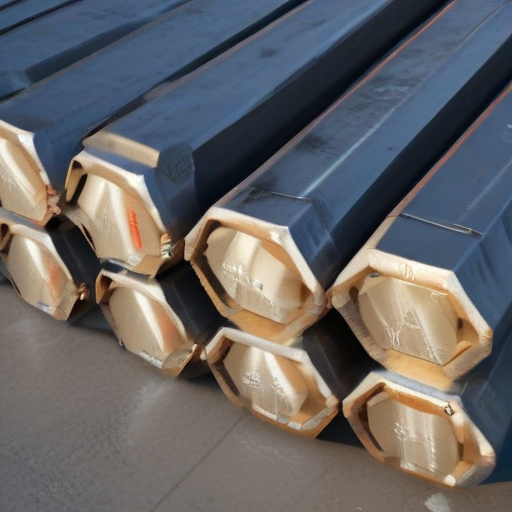
Types of steel strength
There are several types of steel that differ in their strength properties based on their composition and the heat treatment they undergo. The most common types of steel strength are:
1. Mild steel: Mild steel, also known as low carbon steel, has a relatively low strength compared to other types of steel. It is easy to work with and is commonly used in construction, automotive manufacturing, and furniture making.
2. High carbon steel: High carbon steel contains a higher percentage of carbon than mild steel, which increases its strength and hardness. It is commonly used in tools, springs, and knives due to its ability to hold a sharp edge.
3. Alloy steel: Alloy steel is steel that has been alloyed with other elements such as chromium, nickel, or molybdenum to improve its strength, toughness, and wear resistance. Alloy steel is commonly used in aerospace, automotive, and construction industries.
4. Stainless steel: Stainless steel is a type of steel that contains chromium, which helps to prevent corrosion and rusting. It has good strength and durability, making it ideal for applications in the food industry, medical equipment, and marine environments.
5. Tool steel: Tool steel is a type of high carbon steel that is specifically designed for making tools and dies. It has high hardness, wear resistance, and toughness, making it suitable for cutting, drilling, and shaping materials.
Overall, the strength of steel can vary widely depending on its composition and treatment. Choosing the right type of steel for a particular application is important to ensure the desired strength and performance characteristics are achieved.
Pros and Cons of Using steel strength
Steel is a popular material used in construction and engineering due to its strength, durability, and versatility. Here are some of the pros and cons of using steel strength:
Pros:
1. Strength: Steel is known for its high strength-to-weight ratio, making it an ideal material for supporting heavy loads in buildings and structures.
2. Durability: Steel is highly resilient and can withstand extreme weather conditions, corrosion, and wear and tear, making it a long-lasting material.
3. Versatility: Steel can be easily molded and shaped into various forms, making it suitable for a wide range of applications in construction and manufacturing.
4. Sustainability: Steel is a recyclable material, which reduces the need for new raw materials and helps in reducing waste and environmental impact.
5. Cost-effective: Although the initial costs of using steel strength may be higher, it is generally more cost-effective in the long run due to its durability and low maintenance requirements.
Cons:
1. Environmental impact: The production of steel requires a significant amount of energy and resources, leading to carbon emissions and other environmental impacts.
2. Vulnerability to corrosion: Steel is susceptible to corrosion when exposed to moisture and chemicals, which can weaken its structural integrity over time.
3. Weight: Steel is denser than other materials such as aluminum or wood, which may add more weight to the overall structure and require stronger foundations.
4. Fire hazard: Steel can lose its strength at high temperatures, making it vulnerable to fire damage. Fireproofing measures are necessary to protect steel structures.
5. Limited design flexibility: Steel structures may have limitations in terms of design and customization compared to other materials like wood or concrete.
In conclusion, while steel strength offers many benefits such as durability, strength, and versatility, it also has its drawbacks such as environmental impact, vulnerability to corrosion, and limited design flexibility. Understanding these pros and cons can help in making informed decisions when using steel in construction and engineering projects.
steel strength Reference Specifications (varies for different product)
Steel strength is an important factor to consider when choosing a material for various construction, manufacturing, and structural applications. The strength of steel is typically measured in terms of its yield strength, tensile strength, and ultimate strength.
The yield strength of steel refers to the maximum amount of stress that can be applied to the material before it begins to deform permanently. This is an important property to consider when designing structures or components that will be subjected to high levels of stress or load.
Tensile strength, on the other hand, is the maximum amount of stress that a material can withstand before it breaks or fractures. This is a critical factor in determining the overall durability and performance of steel in various applications.
Ultimate strength is the maximum amount of stress that a material can withstand before it fails completely. This is an important specification to consider when designing components that will be subjected to extreme conditions or heavy loads.
Different types of steel will have varying strength properties depending on factors such as the composition, heat treatment, and manufacturing process. It is important to refer to specific product specifications and standards to ensure that the steel being used meets the required strength and performance criteria for the intended application.
Overall, steel strength is a crucial consideration in the design and selection of materials for a wide range of industrial, commercial, and residential applications. By understanding the different strength properties of steel and referencing relevant specifications, engineers and designers can ensure that their projects are safe, reliable, and cost-effective.
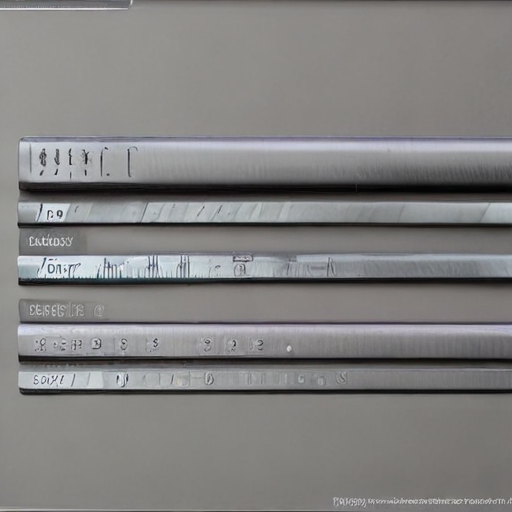
Applications of steel strength
Steel’s strength is widely utilized in a variety of applications across numerous industries. One of the most common uses of steel strength is in the construction industry. Steel is often used in the construction of buildings, bridges, and infrastructure because of its high tensile strength and ability to withstand heavy loads. Steel structures are also known for their durability and resistance to harsh weather conditions, making them a popular choice for buildings that need to stand the test of time.
In the automotive industry, steel strength is utilized in the manufacturing of vehicles. Steel is used in car bodies, frames, and other components because of its ability to provide structural integrity and protect passengers in the event of a collision. High-strength steel alloys are also used in the construction of engine parts and other critical components that require strength and durability.
Steel strength is also important in the manufacturing of industrial equipment and machinery. Steel is used in the construction of heavy-duty machinery, tools, and equipment because of its ability to withstand high loads and resist wear and tear. Steel is also a popular choice for the construction of pipelines, tanks, and other components in the oil and gas industry due to its strength and resistance to corrosion.
Overall, steel’s strength is a crucial factor in a wide range of applications across various industries. Its versatility, durability, and reliability make it a popular choice for manufacturing industries, construction projects, and other applications that require materials with high strength and resilience.
Material of steel strength
Steel is a versatile material known for its exceptional strength and durability, making it a popular choice for a wide range of applications. With its high tensile strength, steel can withstand heavy loads and extreme forces, making it ideal for use in construction, manufacturing, and infrastructure projects.
The strength of steel can be attributed to its composition, which typically includes iron and carbon, as well as other alloying elements such as manganese, nickel, and chromium. By carefully controlling the amount of carbon and other elements in the steel, manufacturers can create materials with varying levels of strength, hardness, and toughness to suit different requirements.
One of the key advantages of steel is its ability to be easily formed and shaped into different shapes and sizes, while still maintaining its strength and structural integrity. This makes steel a cost-effective and practical choice for a wide range of applications, from building construction to automotive manufacturing.
Steel’s strength also makes it highly resistant to bending, twisting, and deformation under stress, making it a reliable and long-lasting material for structures and equipment. In addition, steel is also resistant to corrosion and can withstand exposure to harsh environmental conditions, making it a durable and low-maintenance material for outdoor applications.
Overall, steel is a versatile and reliable material known for its exceptional strength and durability. With its high tensile strength and resilience, steel is an ideal choice for a wide range of applications where strength and reliability are paramount.
Quality Testing Methods for steel strength and how to control the quality
There are several quality testing methods that can be utilized to assess the strength of steel, including tensile testing, hardness testing, impact testing, and microstructure analysis.
Tensile testing is the most common method used to determine the ultimate tensile strength, yield strength, and elongation of a material. This test involves applying a gradual load to a standardized specimen until it fractures, allowing for the calculation of various mechanical properties.
Hardness testing, such as Rockwell or Brinell testing, measures the resistance of a material to indentation or scratching. This can provide valuable information about the hardness and strength of the steel.
Impact testing, specifically Charpy and Izod tests, assesses the material’s toughness by measuring the amount of energy absorbed during fracture. This test is important for evaluating the material’s ability to withstand sudden impacts or shock loading.
Microstructure analysis, using techniques such as metallography or scanning electron microscopy, allows for a detailed examination of the steel’s internal structure. This can provide insight into the grain size, distribution of phases, and potential defects that could affect the material’s strength.
To control the quality of steel, it is essential to establish rigorous quality control procedures throughout the manufacturing process. This includes conducting regular testing and inspection of raw materials, monitoring production parameters, and performing quality checks on finished products.
Additionally, proper handling and storage of steel materials can help prevent contamination or degradation that could compromise the material’s strength. Adequate training of personnel, adherence to industry standards and regulations, and continuous improvement initiatives are all essential components of a successful quality control program.
By utilizing a combination of testing methods, maintaining strict quality control processes, and implementing best practices, manufacturers can ensure the steel’s strength and quality meet or exceed industry standards.
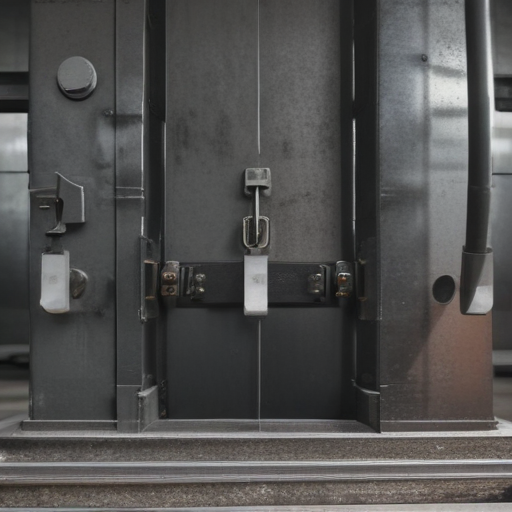
The Work Process and how to use steel strength
The work process for utilizing steel strength involves several steps to ensure the material’s properties are fully optimized. First, it is important to select the appropriate grade of steel based on the desired mechanical properties such as strength, toughness, and ductility. This selection should be based on the specific requirements of the application in which the steel will be used.
Once the steel grade is chosen, the material must be processed and fabricated in a way that maximizes its strength potential. This can include processes such as hot or cold forming, machining, welding, or heat treatment. These processes must be carefully controlled to ensure that the steel’s microstructure is not degraded, which could reduce its strength.
To use steel strength effectively, engineers must also consider factors such as design considerations, loading conditions, and environmental factors. By optimizing the design and loading conditions, the steel can be utilized to its maximum potential without exceeding its strength limits.
It is crucial to perform thorough testing and analysis to ensure that the steel meets the required strength specifications. Testing methods such as tensile testing, impact testing, and hardness testing can be used to assess the steel’s strength and mechanical properties.
In conclusion, by carefully selecting the appropriate grade of steel, processing and fabricating it correctly, and considering all relevant factors in the design and implementation process, steel strength can be effectively utilized without exceeding its limits. This ensures the material’s longevity and reliability in various applications.
steel strength Importing questions including Cost,Supplier,Sample,Certification and Market
When importing steel for its strength, there are several important factors to consider.
Cost: Price is a crucial factor when importing steel. It is important to find a supplier that offers competitive pricing without compromising on quality.
Supplier: Choosing a reliable and reputable supplier is essential when importing steel. Look for suppliers with a good track record, experience in the industry, and positive reviews from other customers.
Sample: Before placing a bulk order, it is advisable to request a sample of the steel to ensure it meets your requirements in terms of strength and quality. This will help you avoid any potential issues or discrepancies once the shipment arrives.
Certification: It is important to ensure that the steel meets the required industry standards and certifications. Look for suppliers that have the necessary certifications to guarantee the quality and strength of the steel being imported.
Market: Before importing steel for its strength, it is important to conduct market research to understand the demand, pricing, and competition in the target market. This will help you make informed decisions and develop a successful importing strategy.
In conclusion, when importing steel for its strength, it is crucial to consider factors such as cost, supplier reputation, sample testing, certification, and market analysis. By paying attention to these key aspects, you can ensure a successful and efficient import process for high-quality steel.
How to find and select check reliable steel strength manufacturers in China
When looking for reliable steel strength manufacturers in China, it is important to first conduct thorough research to ensure that the manufacturers you choose are reputable and meet your specific requirements.
One way to find reliable manufacturers is to attend trade shows and exhibitions where you can meet suppliers in person and see their products firsthand. You can also search online for steel strength manufacturers in China and read customer reviews and testimonials to gauge their reputation.
Additionally, it is essential to verify the certifications and credentials of the manufacturers to ensure that they meet industry standards and regulations. Look for manufacturers with ISO 9001 certification, as this indicates that they have met international quality management standards.
When selecting a manufacturer, consider factors such as production capacity, lead times, pricing, and customer service. Request samples and conduct quality inspections to ensure the products meet your specifications and standards.
Overall, taking the time to thoroughly research and vet potential manufacturers will help you find reliable steel strength manufacturers in China that can meet your needs and expectations.
Background Research for steel strength manufacturers Companies in China, use qcc.com archive.org importyeti.com
In China, there are several steel strength manufacturers that are known for their high-quality products. Some of the most reputable companies in this industry include Baosteel Group Corporation, Jiangsu Shagang Group, and Angang Steel Company Limited.
Baosteel Group Corporation is one of the largest steel producers in China and is known for its advanced technology and innovative products. The company has a strong focus on research and development, continuously working to improve the strength and durability of its steel products.
Jiangsu Shagang Group is another leading manufacturer of steel in China, with a strong reputation for producing high-quality steel products. The company has state-of-the-art facilities and a team of experienced engineers and technicians who ensure that their products meet the highest standards of strength and durability.
Angang Steel Company Limited is also a key player in the Chinese steel industry, known for its strong and durable steel products. The company has a strong focus on sustainability and environmental responsibility, working to reduce its carbon footprint and minimize waste in its production processes.
Overall, these companies are at the forefront of steel strength manufacturing in China, providing customers with high-quality products that meet the highest standards of strength and durability. For more information on these companies and their products, you can visit their official websites or search for them on qcc.com, archive.org, and importyeti.com.
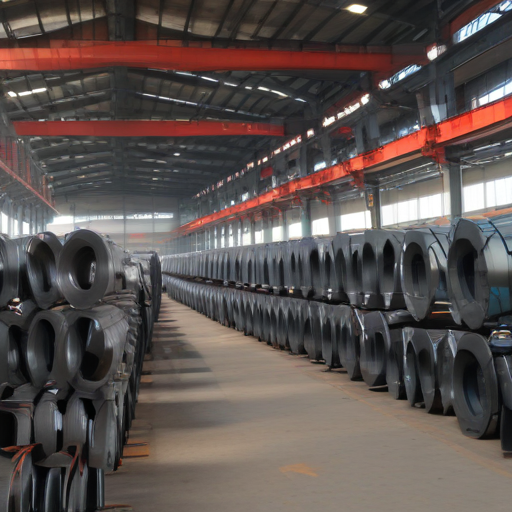
Price Cost Research for steel strength manufacturers Companies in China, use temu.com and 1688.com
When researching prices and costs for steel strength manufacturers in China, two popular websites to use are temu.com and 1688.com. These platforms offer a wide range of suppliers and manufacturers in the steel industry, making it easier to compare prices and costs.
To begin your research, start by searching for steel strength manufacturers on both websites. Filter your search results based on factors such as product type, minimum order quantity, and shipping terms to narrow down your options.
Once you have found a few potential suppliers, reach out to them directly for more information on pricing and costs. Ask about their pricing structure, any additional fees, and whether they offer discounts for bulk orders. It is also important to inquire about the quality of their products and any certifications they may have.
By comparing quotes from multiple suppliers on temu.com and 1688.com, you can get a better understanding of the market prices and costs for steel strength manufacturers in China. This will help you make an informed decision when choosing a supplier for your business needs.
Shipping Cost for steel strength import from China
When importing steel strength from China, shipping costs can vary depending on several factors such as the weight of the shipment, the dimensions of the products, the mode of transportation, and the shipping company used.
If you are importing a large quantity of steel strength, it may be more cost-effective to use sea freight. The cost of shipping via sea freight can range from $500 to $2000 per container, depending on the size and weight of the shipment. Sea freight is usually cheaper than air freight but takes longer to arrive at its destination.
If you need the steel strength to arrive quickly, you may opt for air freight. The cost of air freight can range from $3 to $6 per kilogram, making it a more expensive option compared to sea freight. However, air freight is faster and can be a better option for urgent shipments.
It is important to consider additional costs such as customs fees, duties, and taxes when calculating the total shipping cost. These additional costs can vary depending on the country of importation and the value of the goods being imported.
To ensure that you are getting the best shipping rate for your steel strength import from China, it is recommended to compare quotes from different shipping companies and choose the option that best fits your budget and timeline. Additionally, working with a reputable freight forwarder can help streamline the shipping process and ensure that your goods arrive safely and on time.
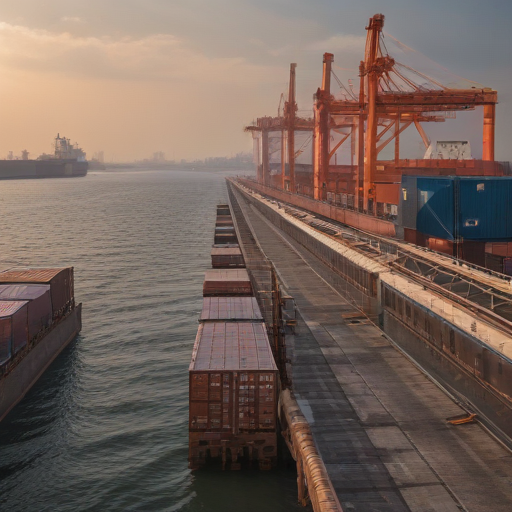
Compare China and Other steel strength Markets: Products Quality and Price,Visible and Hidden Costs
China is known for its large steel industry, producing a wide range of steel products. However, the quality of these products can be highly variable, with reports of inconsistent strength and durability. Other steel strength markets such as Europe and the United States tend to have stricter quality control measures in place, resulting in more consistent and reliable products.
In terms of price, China is often seen as a low-cost producer of steel due to lower labor and production costs. This can make Chinese steel products more affordable compared to those from other markets. However, there can be hidden costs associated with sourcing steel from China, such as longer lead times, communication challenges, and potential quality issues. Other steel strength markets may have higher upfront costs, but the reliability and consistency of their products can result in lower overall costs in the long run.
Visible costs of sourcing steel from China may include transportation and import duties, while hidden costs can include quality control inspections, rework, and potential delays in delivery. In comparison, sourcing steel from other markets may have higher upfront costs but may result in fewer hidden costs due to higher quality and reliability.
In conclusion, while China may offer competitive prices for steel products, the variable quality and potential hidden costs associated with sourcing from China may make other steel strength markets a more attractive option for buyers looking for consistent quality and reliability.
Custom Private Labeling and Branding Opportunities with Chinese steel strength Manufacturers
Chinese steel strength manufacturers offer custom private labeling and branding opportunities for companies looking to expand their product line. These manufacturers are able to produce high-quality steel strength products with customized packaging and branding options.
With the ability to put your company’s logo and design on the products, you can create a unique and personalized line of steel strength products that will stand out in the market. This can help to increase brand recognition and customer loyalty, as well as differentiate your products from competitors.
In addition to private labeling, Chinese steel strength manufacturers also offer custom packaging options to further enhance your brand image. Whether you are looking for sleek and modern packaging or environmentally-friendly options, these manufacturers can help to create the perfect packaging solution for your products.
By partnering with a Chinese steel strength manufacturer for private labeling and branding opportunities, you can take advantage of their expertise and capabilities to bring your products to market quickly and efficiently. With their high-quality products and customized branding options, you can create a successful and distinctive product line that will attract and retain customers.
Tips for Procurement and Considerations when Purchasing steel strength
When purchasing steel for procurement, it is important to consider several key factors to ensure you are getting the right strength and quality for your needs.
1. Determine the required strength: Before making a purchase, determine the strength requirements for the steel based on the specific application. Consider factors such as the load-bearing capacity, environmental conditions, and any regulatory requirements to ensure the steel meets the necessary strength standards.
2. Select the appropriate grade: Steel is available in various grades that offer different levels of strength and durability. Research the different grades available and select the one that best suits your requirements.
3. Consider the type of steel: There are different types of steel, such as carbon steel, stainless steel, and alloy steel, each offering unique properties and strengths. Consider the type of steel that is best suited for your applications and select accordingly.
4. Determine the size and shape: Consider the size and shape of the steel needed for your project, as this can impact the strength and structural integrity of the final product. Ensure that the steel dimensions meet the specifications required for your application.
5. Verify the supplier’s certifications: When purchasing steel, ensure that the supplier has the necessary certifications and quality control processes in place. Look for suppliers that adhere to industry standards and have a proven track record of delivering high-quality steel products.
6. Consider the cost: While it is important to prioritize strength and quality when purchasing steel, it is also crucial to consider the cost. Compare prices from different suppliers and ensure that you are getting the best value for your money without compromising on strength and durability.
Overall, when purchasing steel for procurement, it is essential to consider factors such as strength requirements, grade, type, size, supplier certifications, and cost to ensure you are getting the right steel for your needs. By carefully evaluating these factors, you can make an informed decision and secure high-quality steel for your projects.
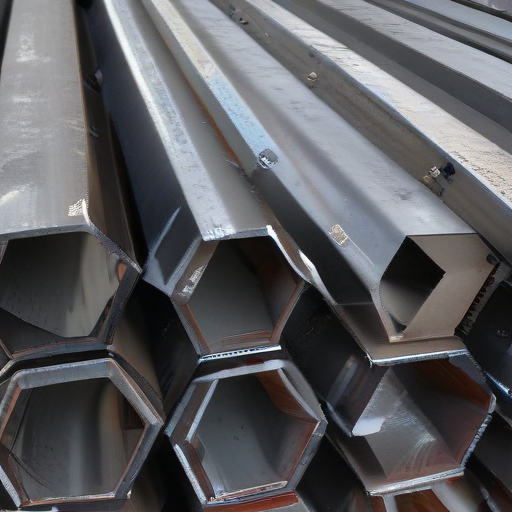
FAQs on Sourcing and Manufacturing steel strength in China
Q: How can I source high-quality steel strength in China?
A: To source high-quality steel strength in China, it is essential to work with reputable manufacturers and suppliers. Conduct thorough research on potential companies, visit their facilities if possible, and ask for samples or certifications to ensure the quality meets your requirements.
Q: What factors should I consider when choosing a steel strength manufacturer in China?
A: When choosing a steel strength manufacturer in China, consider factors like the company’s reputation, production capabilities, quality control processes, pricing, lead times, and communication. It is also essential to ensure that the manufacturer complies with relevant industry standards and regulations.
Q: How can I ensure the steel strength manufactured in China meets my specifications?
A: To ensure that the steel strength manufactured in China meets your specifications, clearly communicate your requirements to the manufacturer and request samples or prototypes for testing. Regular communication, quality inspections, and audits can also help ensure that the final products meet your standards.
Q: What are the common challenges when manufacturing steel strength in China?
A: Common challenges when manufacturing steel strength in China include language barriers, cultural differences, quality control issues, supply chain disruptions, and intellectual property protection. It is essential to address these challenges proactively and work closely with trusted partners to overcome them.
Q: How can I mitigate risks when sourcing and manufacturing steel strength in China?
A: To mitigate risks when sourcing and manufacturing steel strength in China, conduct thorough due diligence on potential suppliers, establish clear contracts and agreements, monitor production processes closely, and implement quality control measures. Working with experienced professionals and utilizing reliable shipping and logistics services can also help mitigate risks effectively.
Why contact sourcifychina.com get free quota from reliable steel strength suppliers?
SourcifyChina.com offers businesses the opportunity to contact reliable steel strength suppliers to obtain a free quota for their steel needs. By utilizing SourcifyChina.com, businesses can access a network of reputable suppliers who can provide high-quality steel products at competitive prices.
One of the key benefits of contacting SourcifyChina.com for a free quota from trusted steel strength suppliers is the assurance of product quality. These suppliers have been vetted for their reliability and consistency in delivering top-notch steel products that meet industry standards.
Moreover, by obtaining a free quota through SourcifyChina.com, businesses can effectively compare offers from multiple suppliers to ensure they are getting the best deal possible. This enables companies to make informed decisions based on pricing, quality, and other factors that are important to their specific needs.
In addition, sourcing steel strength suppliers through SourcifyChina.com saves businesses time and resources by providing a streamlined process for procurement. This allows companies to focus on their core business activities while SourcifyChina.com handles the sourcing and negotiation process on their behalf.
Overall, contacting SourcifyChina.com for a free quota from reliable steel strength suppliers is a smart and efficient way for businesses to secure high-quality steel products at competitive prices.
